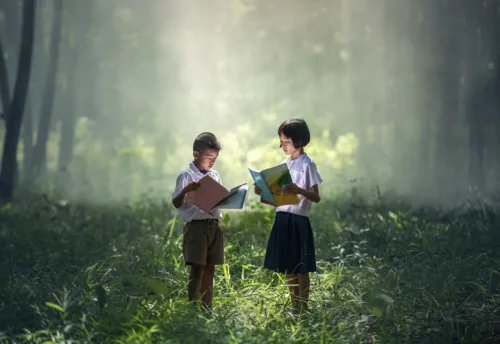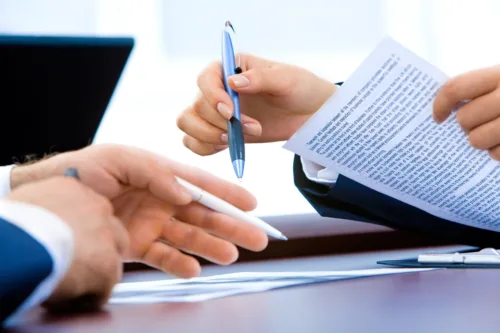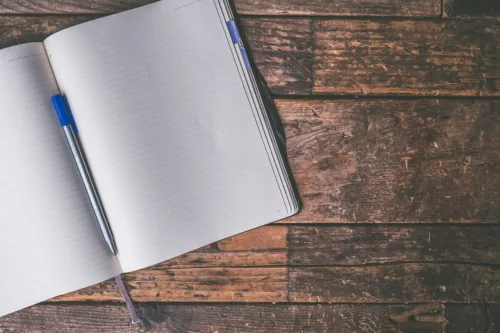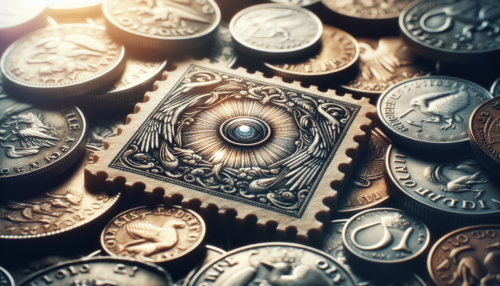In the pursuit of expanding knowledge and expertise in the field of collecting, individuals often seek out reliable resources to gain a deeper understanding of this captivating hobby. This article explores various avenues through which individuals can enhance their understanding of collecting, offering a wealth of information on resources that can provide valuable insights, tips, and guidance. Whether one is a novice or an experienced collector, the plethora of resources showcased here ensures that everyone can find a suitable avenue to further their passion and knowledge in the world of collecting.
Table of Contents
Books
General collecting guides
General collecting guides are invaluable resources for those who are new to collecting or are interested in expanding their knowledge in various collecting areas. These books provide comprehensive overviews of different types of collectibles, including coins, stamps, antiques, vintage toys, and more. They often cover topics such as the history and origin of collectibles, proper storage and preservation techniques, pricing and valuation methods, as well as guidance on building a collection. Some highly recommended general collecting guides include “The Complete Guide to Collecting” by Jonathan E. Steinfeld, “The Ultimate Collector’s Handbook” by Mary Frank Gaston, and “Collecting for Beginners” by Mark Hill.
Specialized collecting guides
Specialized collecting guides delve into specific areas of collecting, offering in-depth knowledge and expertise for enthusiasts who have a particular interest. These books may focus on a specific type of collectible, such as rare books, vintage watches, sports memorabilia, or even limited edition sneakers. They provide detailed information on identifying authentic items, understanding market trends, and building a collection in the specific niche. Some notable specialized collecting guides include “The Art of Collecting Vintage Jewelry” by Sandra van den Broek, “The Complete Guide to Sports Memorabilia Collecting” by Tom Mortenson, and “The Ultimate Guide to Comic Book Collecting” by Peter Sanderson.
Books about specific types of collectibles
Apart from collecting guides, there are also numerous books that explore the history, significance, and beauty of specific types of collectibles. These books often showcase stunning photographs and detailed descriptions of rare and unique items, providing collectors with inspiration and a deeper understanding of their chosen area of interest. Whether it’s art, coins, postcards, or vintage cars, there is a plethora of books available that cater to specific collectibles. Some notable examples include “The Art of the Japanese Sword” by Yoshindo Yoshihara, “Rare Coins of the World” by Moritz Wormser, and “Postcards of the Wiener Werkstätte” by Christian Brandstätter.
Online Articles and Blogs
General collecting websites
General collecting websites are excellent online resources for collectors of all levels. These websites provide a wealth of information, articles, and resources on various collectibles, as well as forums and communities where collectors can connect and share their knowledge and experiences. Websites like Collectors Weekly, Antique Trader, and The Spruce Crafts offer a wide range of articles covering diverse collecting categories, helping collectors stay updated on the latest trends and developments in the field. They often feature expert advice, tips for beginners, and informative guides on topics such as restoration, buying and selling, and spotting fakes.
Collecting blogs
Collecting blogs are another fantastic resource for collectors, offering personal accounts, stories, and insights from experienced collectors and enthusiasts. These blogs often provide a more informal and personal perspective on collecting, sharing anecdotes, tips, and advice that may not be found in traditional reference books. From vintage cameras to antique furniture, there are blogs dedicated to almost every imaginable collecting niche. Some popular collecting blogs include “The Antique Sage” by Julie Jarvis, “Vintage Matters” by Sarah Jane Nehama, and “The Toy Book” by Jackie Breyer.
Online magazines and publications
Online magazines and publications focusing on collecting provide a wealth of information and inspiration for collectors. These publications often feature in-depth articles, interviews with experts, and reviews of new collectibles, as well as discussions on topics such as the history and cultural significance of different collectibles. Online magazines like “Antiques and Collectibles Magazine,” “The Journal of Antiques and Collectibles,” and “Warman’s Antiques and Collectibles” cover a wide range of collecting areas and offer valuable insights into the world of collecting. These digital publications are easily accessible and can be read on computers, tablets, or smartphones.

Museums and Exhibitions
Local museums
Local museums are an often-overlooked resource for collectors, providing opportunities to view rare and unique collectibles up close. Many museums house extensive collections ranging from fine art and historical artifacts to scientific specimens and cultural objects. Visiting local museums can offer a valuable learning experience, allowing collectors to observe the craftsmanship, materials, and design elements of high-quality collectibles firsthand. Museums with specialized exhibits or dedicated collecting departments, such as the Victoria and Albert Museum in London or the Metropolitan Museum of Art in New York, often provide curated displays and educational programs specific to collectors.
National museums
National museums have expansive collections that cover a broad range of disciplines and periods, making them ideal destinations for collectors seeking in-depth knowledge and inspiration. These institutions often offer specialized exhibits and galleries dedicated to specific categories of collectibles, allowing visitors to explore the history, context, and cultural significance of various objects. National museums, such as the British Museum in London, the Louvre in Paris, and the Smithsonian Institution in Washington, D.C., provide comprehensive resources and educational materials, including online databases, publications, and scholarly research, making them invaluable sources of information for serious collectors.
Traveling exhibitions
Traveling exhibitions present collectors with unique opportunities to view extraordinary and rare collectibles that may not be accessible through local or national museums alone. These exhibitions often center around specific themes, artists, or historical periods and feature items on loan from renowned collectors or private collections. They provide a chance for collectors to see a diverse range of objects and gain insights into the curatorial decisions behind the display. Traveling exhibitions can be found in various venues, such as galleries, museums, and cultural centers, and they frequently tour different cities and countries, allowing collectors from different regions to access exceptional collectibles and expand their knowledge.
Collectors’ Conferences and Fairs
Collector conventions
Collector conventions are gatherings that bring together collectors, experts, and enthusiasts from around the world to exchange knowledge, network, and showcase their collections. These events feature extensive exhibits, panel discussions, presentations, and workshops that cater to diverse collecting categories. Collector conventions offer opportunities for collectors to meet like-minded individuals, learn from seasoned experts, and discover new items for their collections. Some renowned collector conventions include the International Collectibles & Antiques Shows, the National Sports Collectors Convention, and the Philatelic Exhibition of North America (NAPEX).
Antique fairs
Antique fairs are highly anticipated events for collectors seeking rare and unique pieces from different periods and styles. These fairs often attract antique dealers, collectors, and enthusiasts from all over the world, creating a vibrant marketplace for buying, selling, and trading collectibles. Antique fairs typically feature a wide array of items, such as furniture, ceramics, fine art, jewelry, and vintage clothing, allowing collectors to explore multiple categories and discover new treasures. Some notable antique fairs include the Chelsea Antiques Fair in London, the Brimfield Antique Show in Massachusetts, and the Marché aux Puces de Saint-Ouen in Paris.
Specialized collector events
Specialized collector events focus on specific types of collectibles, catering to collectors who have a strong passion for a particular niche. These events often provide a more focused environment for collectors to connect with experts, attend specialized lectures and workshops, and view curated exhibits featuring highly sought-after items. Whether it’s a vintage toy fair, a wine collectors’ conference, or a comic book convention, specialized collector events offer valuable opportunities for enthusiasts to immerse themselves in their chosen area of interest. Some well-known specialized collector events include the San Diego Comic-Con, the International Vintage Poster Fair, and the Whisky Show.

Online Forums and Communities
General collecting forums
General collecting forums are online platforms where collectors can engage in discussions, share knowledge and experiences, seek advice, and connect with fellow enthusiasts. These forums cover a wide range of collecting categories, providing opportunities for collectors to learn from seasoned experts and engage in conversations about their favorite collectibles. Popular general collecting forums include Antique-Bottles.net, CoinTalk.com, and Stamp Community. These forums often have dedicated sections for buying and selling, as well as subforums for specific topics, allowing collectors to dive deeper into particular areas of interest.
Community-specific forums
Community-specific forums focus on particular collecting communities, allowing collectors to connect and interact with individuals who share a common interest. From model train enthusiasts to vintage fashion collectors, there are forums dedicated to almost every imaginable niche. These forums provide a platform for members to share their collections, discuss recent finds, ask questions, and contribute to ongoing discussions. Some examples of community-specific collecting forums include Fountain Pen Network, Model Ship World, and The Vintage Fashion Guild. These forums foster a sense of community among collectors and provide a space for specialized knowledge and expertise to be shared.
Social media groups and pages
Social media platforms have become increasingly popular among collectors, with various groups and pages dedicated to different types of collectibles. These online communities allow collectors to connect, share photos, exchange information, and participate in discussions about their favorite items. Facebook, Instagram, and Reddit host numerous collecting groups and pages, catering to a vast range of interests. Joining social media groups and following pages related to collecting can be a fantastic way to engage with a broader community, discover new collectibles, and stay up to date with the latest trends and news.
YouTube Channels and Podcasts
Educational YouTube channels
Educational YouTube channels offer visual content that combines entertainment and learning, making them an excellent resource for collectors. Many channels focus on specific collecting categories and provide informative videos on various aspects of collecting, including identification, restoration techniques, market trends, and interviews with experts. Some popular educational YouTube channels include “The Urban Historian” for urban exploration and antiques, “CoinWeek” for coin collecting, and “Watches & Wonders” for luxury timepieces. The visual nature of YouTube allows collectors to see detailed examples of collectibles and gain insights from experienced collectors and specialists.
Collector podcast series
Podcasts have become a popular medium for storytelling and educational content, and collectors can find a plethora of podcasts dedicated to their interests. Collector podcast series often feature interviews with experienced collectors, discussions on specific collectibles and collecting strategies, and personal anecdotes. These podcasts provide a portable and convenient way for collectors to stay engaged with the collecting community while commuting, exercising, or working on their collections. Some notable collector podcast series include “Curious Objects” by The Magazine Antiques, “Stuff You Should Know” by iHeartRadio, and “The Art History Babes” by The Art History Babes.
Interviews with experienced collectors
Interviews with experienced collectors, either in written or audio format, offer valuable insights and inspiration for collectors at all levels. These interviews provide glimpses into the personal journeys, motivations, and strategies of seasoned collectors, highlighting their expertise and offering practical advice. Collectors can learn from the experiences of others, discover new collecting niches, and gain insights into the evolving landscape of collecting. Many collecting publications, online magazines, and podcasts feature interviews with experienced collectors, allowing enthusiasts to tap into a wealth of knowledge and experience from those who have dedicated years to their passion.

Appraisal Services
Local appraisal experts
Local appraisal experts offer professional assessments and valuations of collectibles, providing collectors with expert opinions on the authenticity, condition, and value of their items. These experts often have specialized knowledge in specific collecting areas and utilize their expertise to provide accurate and unbiased appraisals. Many appraisers are members of recognized appraisal organizations, such as the Appraisers Association of America or the International Society of Appraisers. Seeking the services of a local appraisal expert can be beneficial when considering selling or insuring collectibles, ensuring that collectors have a clear understanding of the worth and significance of their valued items.
Online appraisal services
Online appraisal services have become increasingly popular, as they offer convenience and accessibility for collectors around the world. These services typically require collectors to submit detailed descriptions, photographs, and any relevant documentation of their collectibles, which are then reviewed by a team of expert appraisers. Online appraisal services often provide a rapid turnaround time and a digital appraisal report that can be securely stored and accessed in the future. Some well-known online appraisal services include ValueMyStuff and WorthPoint. However, collectors should research and choose reputable services with a track record of accurate appraisals and positive customer reviews.
Collectible authentication organizations
Collectible authentication organizations specialize in verifying and certifying the authenticity of collectibles, particularly in areas where fraudulent or counterfeit items are prevalent. These organizations employ specialists and utilize advanced techniques, including scientific analysis and historical research, to authenticate collectibles. Collectors can submit their items to these organizations for examination, and if deemed authentic, receive a certificate of authenticity that adds value and credibility to their collectibles. Examples of collectible authentication organizations include the Professional Sports Authenticator (PSA) for sports memorabilia, the Authentic Autographs Unlimited for autographed items, and the Comic Book Certification Service (CBCS) for comic books.
Library Resources
Collecting reference books
Library collections often include a wealth of collecting reference books that cover a wide range of collecting areas. These books provide valuable information on the history, production, and significance of various collectibles, as well as guidance on identifying and evaluating items. Collecting reference books are typically written by experts in the field, offering reliable and authoritative information for collectors. Libraries may hold collections of both old and new reference books, allowing collectors to access primary sources, historical catalogs, and recent publications. Searching library catalogs or consulting with librarians can help collectors discover valuable reference materials tailored to their collecting interests.
Digital library resources
In addition to physical collections, many libraries offer digital resources that can be accessed remotely by patrons. These digital library resources include online databases, e-books, digitized manuscripts, and archival materials related to collecting. Digital library resources often provide access to scholarly articles, exhibition catalogs, auction catalogs, and other research materials that can enhance collectors’ understanding of their chosen fields. Online platforms like JSTOR, Google Books, and the Internet Archive host extensive digital collections that span various collecting categories, providing collectors with a virtual treasure trove of knowledge and information.
Library archives and special collections
Some libraries house specialized archives and special collections dedicated to collecting and collectors. These archives may contain personal papers, correspondence, catalogues raisonnés, and other unique materials related to renowned collectors or prominent collections. Exploring library archives and special collections can offer collectors a fascinating glimpse into the lives and collecting habits of individuals who have made significant contributions to the field. Libraries, such as the Frick Art Reference Library in New York, the Centre for Studies of the Art and Antiques Market in the Netherlands, and the National Art Library at the Victoria and Albert Museum in London, are known for their extensive archives and special collections on collecting.

Educational Courses and Workshops
Online collecting courses
Online collecting courses provide structured learning experiences for collectors looking to expand their knowledge or delve deeper into specific collecting areas. These courses are typically offered by educational platforms, museums, and universities, and cover a wide range of collecting topics. Online collecting courses may include modules on identifying and evaluating collectibles, understanding market trends, curating exhibits, or managing collections. Some popular platforms that offer online collecting courses include Coursera, Udemy, and MasterClass. These courses often feature video lectures, quizzes, assignments, and access to online forums or communities, allowing learners to engage with both instructors and fellow students.
Local collecting workshops
Local collecting workshops provide hands-on learning experiences for collectors in a specific geographic area. These workshops are often organized by museums, galleries, or community centers, and focus on practical skills, such as restoration techniques, framing, or cataloging. Attending local workshops allows collectors to learn from experts in a hands-on, interactive environment, receiving personalized instruction and guidance. Local collecting workshops may also provide opportunities for participants to connect with other collectors and share their experiences and knowledge. Checking local event calendars, community bulletin boards, or contacting museums and art centers can help collectors discover workshops in their area.
University programs in collecting studies
For those seeking a more structured and comprehensive education in collecting, university programs in collecting studies offer specialized degrees or certificates. These programs provide a deep dive into the principles and practices of collecting, combining academic coursework with hands-on experiences. University programs in collecting studies often cover topics such as art and cultural heritage, provenance research, museum studies, and ethics in collecting. Graduates of these programs may go on to work in museums, archives, auction houses, or pursue careers as independent collectors or consultants. Some universities known for their collecting studies programs include Sotheby’s Institute of Art, the University of Glasgow, and the University of the Arts London.
Collectors’ Associations
General collectors’ associations
General collectors’ associations are organizations that bring together collectors of various categories under a common umbrella. These associations provide a platform for networking, collaboration, and educational opportunities for collectors. General collectors’ associations often organize conferences, lectures, and workshops, inviting experts to share their knowledge and insights with members. Additionally, these associations may publish newsletters, journals, or magazines that keep collectors informed about industry news, upcoming events, and new discoveries. Examples of general collectors’ associations include the International Society of Appraisers, the American Philatelic Society, and the International Perfume Bottle Association.
Specialized collectors’ associations
Specialized collectors’ associations focus on specific collecting niches or categories, catering to the unique needs and interests of collectors within those areas. These associations provide a specialized community where collectors can connect and exchange information, share resources, and collaborate on research projects. Specialized collectors’ associations often publish journals or newsletters specific to their collecting niche, offering articles, collectors’ profiles, and updates on rare finds. Examples of specialized collectors’ associations include the British Toy Collectors’ Society, the Antique Map Collectors’ Association, and the Vinyl Record Collectors’ Association. Joining these associations allows collectors to tap into a wealth of expertise and build connections with fellow enthusiasts.
Networking and collaboration opportunities
Joining collectors’ associations, attending conferences or fairs, and participating in forums and online communities present valuable opportunities for collectors to network and collaborate with others in the field. Networking and collaboration can lead to valuable connections, mentorship opportunities, and the exchange of information and resources. Collectors often learn from one another, share tips on sourcing and preserving collectibles, and collaborate on research or shared projects. By broadening their network and engaging with the collecting community, collectors can enrich their own collecting experiences and contribute to the ongoing cultivation of knowledge and passion for collectibles.
In conclusion, collectors have access to a plethora of resources to enhance their knowledge and understanding of the fascinating world of collecting. Whether it’s through reference books, online articles and blogs, museum exhibitions, collectors’ conferences, or online forums and communities, collectors can continually expand their expertise, engage with like-minded individuals, and stay informed about the latest trends and developments in their chosen collecting areas. Utilizing these resources, collectors can navigate the vast landscape of collectibles with confidence, cultivating their passion and building meaningful collections that tell stories and preserve history.

Related site – Collector Resources for Understanding the Hobby of Collecting Coins

